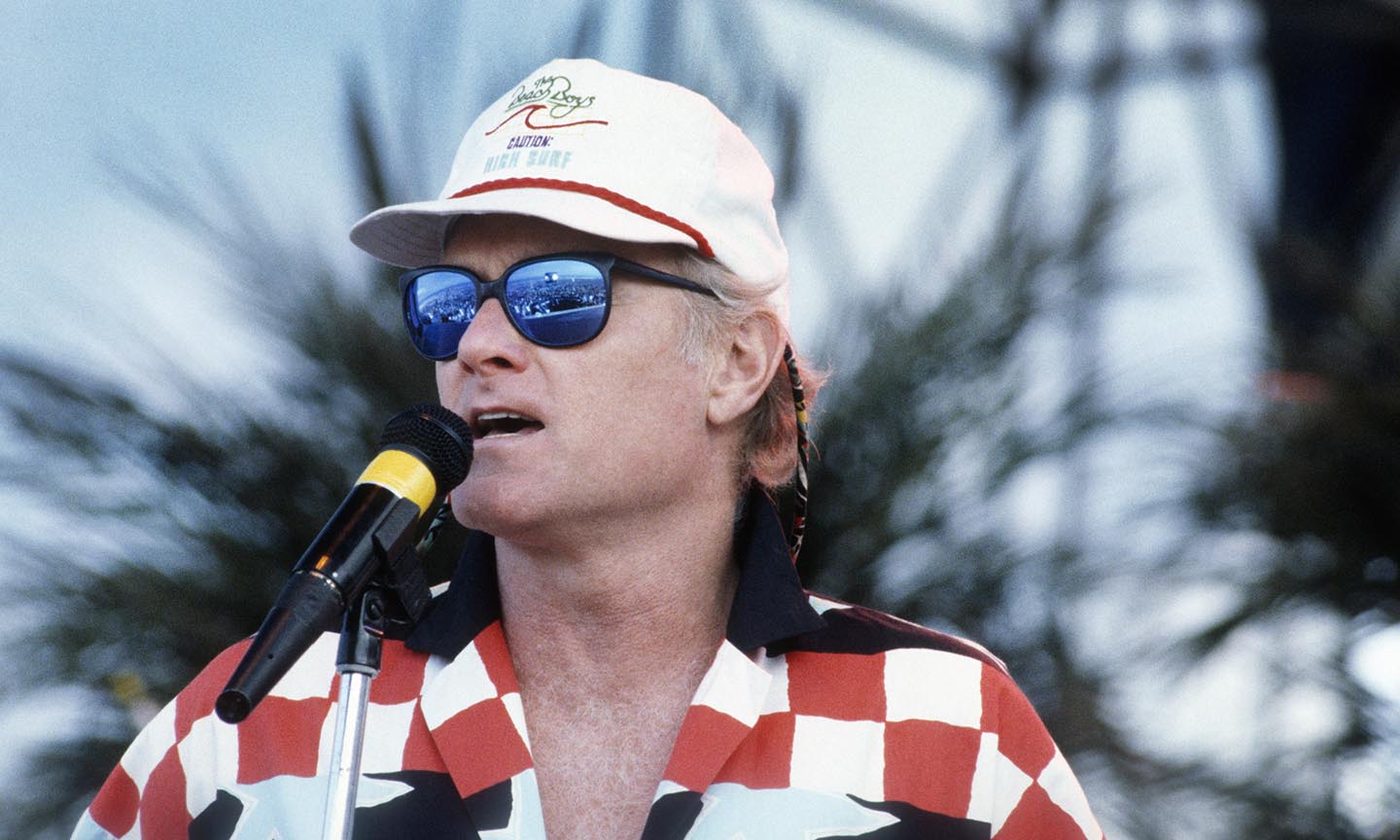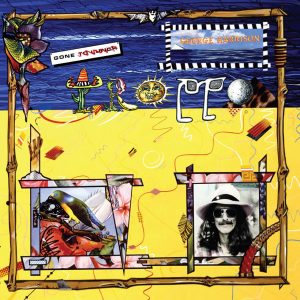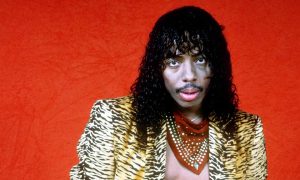In 1988, 24 years after their first U.S. No. 1, the Beach Boys scored, what is to date, their last U.S. No. 1. The song, “Kokomo,” which was used to such great effect in the Tom Cruise movie Cocktail, was written by Mike Love from the Beach Boys, John Phillips from The Mamas and The Papas, and Scott McKenzie who had a huge hit with “San Francisco (Be Sure to Wear Some Flowers in Your Hair).” Terry Melcher, who sang in a duo with Bruce Johnson, called, cunningly, Bruce and Terry, and who was also Doris Day’s son and the first Byrds producer also got a co-writing credit and produced “Kokomo.”
“The Robins, a black doo-wop group in LA, cut ‘Smokey Joe’s Café’ written by Lieber & Stoller. It influenced me a heck of a lot when I went to write Kokomo.” – Mike Love.
Kokomo is actually a name that has played a long and varied history in popular music, one that you could not begin to make up. One of its strangest manifestations was as the pseudonym for classically trained pianist Jimmy Wisner). The graduate of Temple University had formed a jazz trio in 1959 backing Mel Torme amongst others, Mel also recorded a song about Kokomo. Wisner had the idea to “rock the classics” — not original, but as often happened with these records it was a one-off idea that worked.
He played the melody of Greig’s Piano Concerto and he did it in A minor, hence the single’s name, “Asia Minor.” Unable to get a release through an established label, big or small, Wisner decided to start his own – Future Records. It became a local hit and soon got a national release through London subsidiary label, Felstead. It made No. 8 in America in spring 1961 and No. 35 in Britain. Wisner had adopted the Kokomo name to protect his jazz reputation, and at the time of the single’s release he never gave an interview or had a picture published. There were four more singles during 1961 and the start of 1962 but none even got close to making the charts; in Britain the only other single he released was his fourth US release.
Wisner did not return to jazz, he stayed in mainstream pop, arranging and producing. Among the records he worked on were Len Barry’s “1-2-3,” The Cowsills, “The Rain The Park and Other Things,” as well as several by one of the quintessential harmony groups of the ‘60’s, Spanky and Our Gang. Wisner also co-wrote the Searchers last UK No. 1, “Don’t Throw Your Love Away” and worked with Barbara Streisand, Al Kooper, Iggy Pop, Brigitte Bardot, and played the organ on Freddy Cannon’s “Palisades Park.” See, you could not begin to make this up!
Way back in February 1936 Kokomo Arnold accompanied Peetie Wheatstraw on record for the first time, but it was far from Kokomo’s first session. He first recorded back in 1930 when the 29 years old Georgia native released a record as Gitfiddle Jim; generally, Kokomo was known at this time by his given name, James Arnold.
Arnold was a left-handed slide guitarist, who was living in Chicago and working as a bootlegger, did not cut another record for four years when he cut “Old Original Kokomo Blues” from which he took his nickname; Robert Johnson later reworked the song as “Sweet Home Chicago.” Arnold himself had based the song on “Kokomo Blues,” a 1928 recording by that other bootlegging guitarist Scrapper Blackwell. On the flip side was “Milk Cow Blues,” which would also be reworked by others, including Bob Wills and Elvis Presley.
And that’s far from all. Louis Armstrong, Dinah Shore, John Renbourn Little Feet, and Eric Bibb all recorded songs about Kokomo.
Kokomo is also a real place, but not “off the Florida Keys.” It’s actually six places because there is a Kokomo in Indiana, Missouri, Arkansas, Colorado, Hawaii, and Texas. As well as being a place, it was a popular brand of 1920s coffee. In the 1970s there was a band named Kokomo, containing two of Joe Cocker’s Grease Band in the line-up. (They had fleeting success on the rock circuit.)




